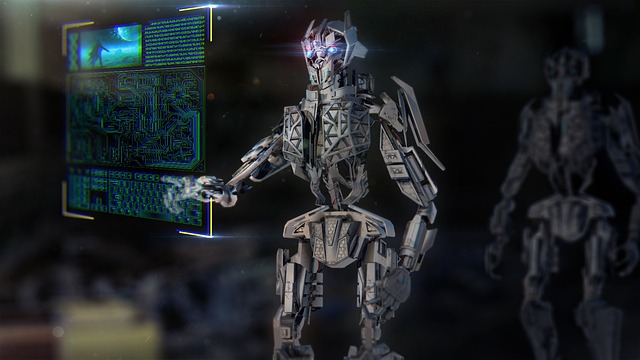Table of Contents
Introduction
Artificial Intelligence (AI) stands at the forefront of technological innovation, revolutionizing industries, enhancing automation, and reshaping societal paradigms. This article explores the multifaceted landscape of AI, delving into its history, current applications, ethical considerations, and future implications.
Historical Evolution of Artificial Intelligence
The concept of AI has evolved over decades, marked by significant milestones and breakthroughs:
- Early Foundations: The origins of AI can be traced back to the mid-20th century, with pioneers like Alan Turing and John McCarthy laying theoretical groundwork in computation and intelligent machines.
- Symbolic AI and Expert Systems: In the 1950s-1970s, AI research focused on symbolic reasoning and rule-based systems to emulate human decision-making processes.
- Neural Networks and Machine Learning: The resurgence of interest in AI in the 1980s-1990s saw advancements in neural networks, pattern recognition, and machine learning algorithms, paving the way for practical applications.
- Big Data and Deep Learning: The 2000s-present witnessed exponential growth in AI capabilities fueled by big data, computational power, and breakthroughs in deep learning, enabling AI systems to surpass human performance in specific tasks.

Current Applications of Artificial Intelligence
AI technologies are integrated into various sectors, transforming industries and everyday experiences:
- Natural Language Processing (NLP): AI-powered chatbots, virtual assistants (e.g., Siri, Alexa), and language translation services enhance communication and customer service.
- Computer Vision: Applications in image recognition, facial recognition, autonomous vehicles, and medical diagnostics revolutionize healthcare, transportation, and security.
- Machine Learning in Finance: AI algorithms analyze vast datasets to detect fraud, optimize trading strategies, and personalize financial services.
- AI in Manufacturing and Robotics: Automation and predictive maintenance improve efficiency, safety, and quality control in manufacturing processes.
- AI in Healthcare: Diagnosis support systems, personalized medicine, and predictive analytics enhance patient care and medical research.
Ethical Considerations in Artificial Intelligence
The rapid advancement of AI raises ethical concerns and societal implications:
- Bias and Fairness: AI algorithms can perpetuate biases present in training data, affecting decisions related to hiring, lending, and criminal justice.
- Privacy and Data Security: AI systems collect and analyze massive amounts of personal data, raising concerns about data privacy, surveillance, and consent.
- Transparency and Accountability: The opacity of AI decision-making processes poses challenges in understanding and auditing AI systems&8217; outcomes.
- Impact on Employment: Automation and AI-driven job displacement raise questions about workforce transitions, retraining, and economic inequality.
- Existential Risks: Theoretical concerns about superintelligent AI systems surpassing human control and posing existential risks to humanity.

Future Directions of Artificial Intelligence
Anticipated trends and challenges shaping the future of AI:
- AI Ethics and Regulation: Frameworks for ethical AI development, responsible deployment, and regulatory policies to mitigate risks and ensure accountability.
- AI and Human Augmentation: Collaborative AI systems that enhance human capabilities in creativity, decision-making, and problem-solving.
- AI in Global Challenges: Addressing climate change, healthcare disparities, and humanitarian crises through AI-driven solutions and predictive modeling.
- AI and Education: Integration of AI in personalized learning platforms, adaptive tutoring systems, and skills development for the future workforce.
- AI in Space Exploration and Scientific Discovery: AI-driven simulations, data analysis, and autonomous systems advancing space exploration and frontier scientific research.

Conclusion
Artificial Intelligence represents a transformative force with the potential to reshape industries, economies, and societal norms. As AI continues to evolve, addressing ethical considerations, fostering global collaboration, and leveraging AI for sustainable development goals will be pivotal in harnessing its benefits while mitigating risks. Embracing interdisciplinary approaches and ethical frameworks will ensure that AI remains a powerful tool for innovation, prosperity, and human advancement in the 21st century.
References
- Russell, S. J., & Norvig, P. (2021). Artificial Intelligence: A Modern Approach (4th ed.). Pearson.
- Bostrom, N. (2014). Superintelligence: Paths, Dangers, Strategies. Oxford University Press.
- European Commission. (2020). White Paper on Artificial Intelligence &8211; A European approach to excellence and trust.

